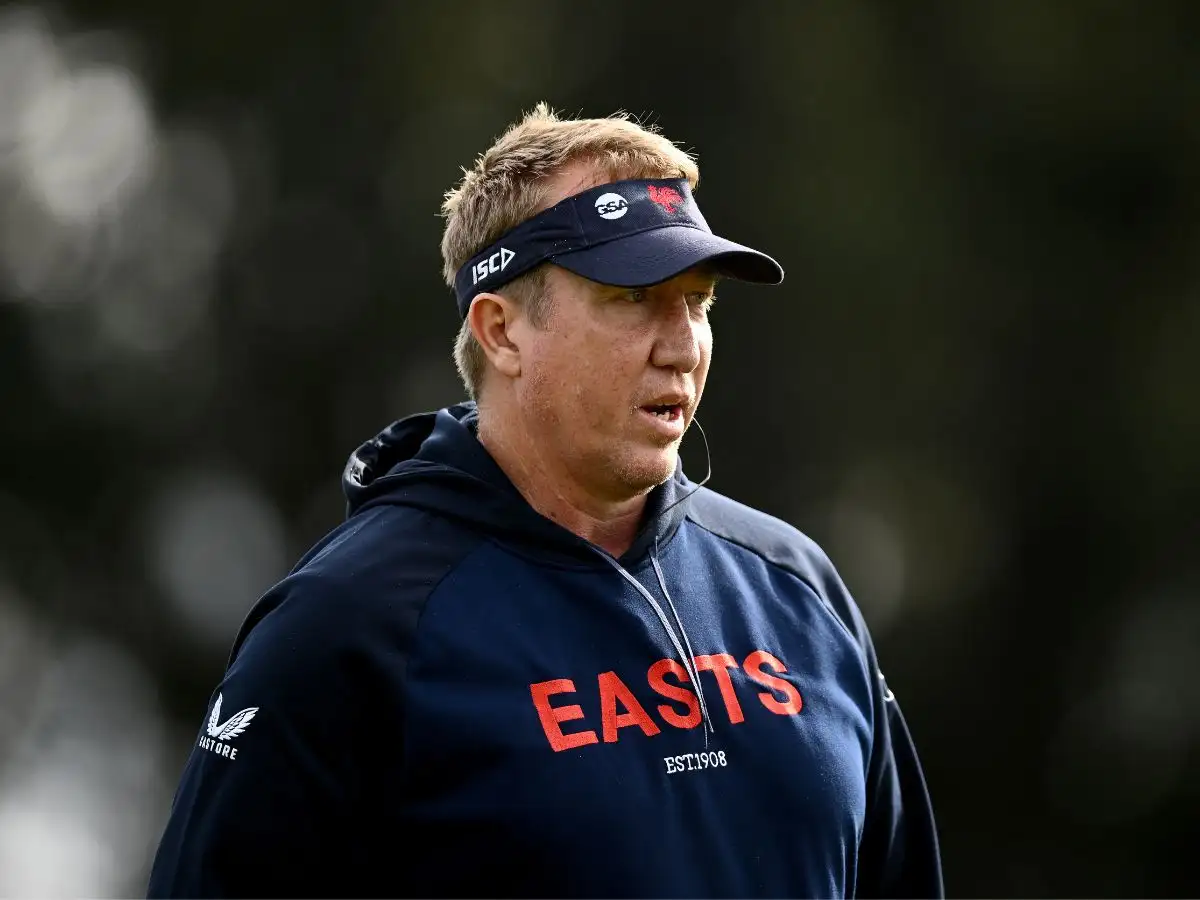Trent Robinson calls for more inclusion in the NRL as he backs LGBTQ+ coaching programme

Sydney Roosters coach Trent Robinson says more needs to be done to support inclusion in the NRL and sport as a whole.
The three-time NRL winner has backed a new training programme for coaches to support LGBTQ+ inclusion, after research Down Under revealed 73% of young LGBTQ+ athletes don’t feel safe playing team sport.
Robinson said: “I’ve seen players that weren’t comfortable enough to come out with their sexuality until after they finished their career, and I see that as being a reflection on the environment that we create.
“I do think our sporting environments have improved over the last few years, and we are getting better at understanding how people can be themselves within these environments but there’s still a long way to go.”
The barriers to play can include slurs, bullying and exclusion, often leading to gay men and women having to hide their sexuality while playing sport.
Preventing drop outs and mental health issues
The Coach For All programme, backed by Allianz Australia and Pride in Sport, believes that coaches are in a unique position to positively influence behaviour and encourage an inclusive environment.
Pride in Sport Project Officer, Ben Cork, says the first-time kids experience homophobic behaviour and language is often in sports, leading to a culture of ingrained, if unintentional, exclusion which often forces youngsters to hide their diversity or stop playing sport.
Robinson added: “By taking part in Coach For All and by going through the training modules myself, I’ve learnt how to best tackle the tough conversations and how to confront harmful behaviour in the right way.
“We do coaching courses on strategy, techniques and tactics, but we also need to do better with inclusivity, understanding our role as coaches and how we inform and support the kids, the adults, and ultimately the communities that we coach.”
The four-part series features short video modules, Q+As and downloadable PDF resources. Robinson and Australian paralympian Louise Sauvage OAM feature in each video module sharing skills to identify problematic behaviour and confront it in potential real-life scenarios.
NRL’s inclusion controversy
There was controversy in the NRL last season over the Manly Sea Eagles pride jersey, which several players refused to wear in a game, ironically against Robinson’s Roosters side.
The jersey was intended to celebrate inclusiveness, and instead caused a storm that saw players withdraw from the side citing religious and cultural reasons.
The seven players who withdrew were Josh Aloiai, Toafofoa Sipley, Tolutau Koula, Christian Tuipulotu, Haumole Olakau’atu, Jason Saab and Josh Schuster, and they didn’t attend the game due to safety fears as Manly lost 20-10.
That led to calls for the NRL to introduce a Pride Round, with Cronulla Sharks forward Toby Rudolf proclaiming ‘love is love’ in the aftermath of the fall out. The players were criticised too given the fact that the regular Manly shirt adorned gambling advertising.
Manly didn’t win a game after the fiasco, resulting in the dismissal of head coach Des Hasler.
The only Australian professional rugby league player to come out as gay is former Sea Eagles player Ian Roberts, who did so in 1995.
Roberts was born in England but his family emigrated to Australia when he was a baby and he went on to play more than 200 first grade games for South Sydney, Manly and North Queensland, as well as having a stint in the UK with Wigan.
He earned 13 caps for Australia and also represented New South Wales in State of Origin, although all appearances were before he came out as gay. He retired in 1998.
A former Sydney Roosters youngster, Casey Conway, who never played a first game game for the club came out as gay following his retirement from a shoulder injury at the age of 22.
Batley forward Keegan Hirst became the first British professional rugby league player to come out as gay in 2015.
Keegan Hirst on playing return and representing gay community